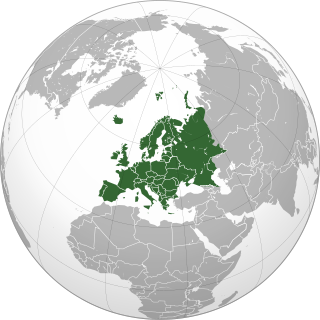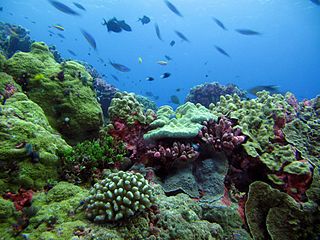This article relies too much on references to primary sources .(June 2007) (Learn how and when to remove this template message) |
The Framework Convention on the Protection and Sustainable Development of the Carpathians(Carpathian Convention) is a framework type convention pursuing a comprehensive policy and cooperating in the protection and sustainable development of the Carpathians. Designed to be an innovative instrument to ensure protection and foster sustainable development of this outstanding region and living environment, the Convention is willing to improve the quality of life, to strengthen local economies and communities.
It aims as well at providing conservation and restoration of unique, rare and typical natural complexes and objects of recreational and other importance situated in the heart of Europe, preventing them from negative anthropogenic influences through the promotion of joint policies for sustainable development among the seven countries of the region (Czech Republic, Hungary, Poland, Romania, Serbia and Montenegro, Slovakia and Ukraine).

Europe is a continent located entirely in the Northern Hemisphere and mostly in the Eastern Hemisphere. It is bordered by the Arctic Ocean to the north, the Atlantic Ocean to the west and the Mediterranean Sea to the south. It comprises the westernmost part of Eurasia.

Human impact on the environment or anthropogenic impact on the environment includes changes to biophysical environments and ecosystems, biodiversity, and natural resources caused directly or indirectly by humans, including global warming, environmental degradation, mass extinction and biodiversity loss, ecological crisis, and ecological collapse. Modifying the environment to fit the needs of society is causing severe effects, which become worse as the problem of human overpopulation continues. Some human activities that cause damage to the environment on a global scale include human reproduction, overconsumption, overexploitation, pollution, and deforestation, to name but a few. Some of the problems, including global warming and biodiversity loss pose an existential risk to the human race, and overpopulation causes those problems.

The Czech Republic, also known by its short-form name, Czechia, is a landlocked country in Central Europe bordered by Germany to the west, Austria to the south, Slovakia to the east and Poland to the northeast. The Czech Republic covers an area of 78,866 square kilometres (30,450 sq mi) with a mostly temperate continental climate and oceanic climate. It is a unitary parliamentary republic, with 10.6 million inhabitants; its capital and largest city is Prague, with 1.3 million residents. Other major cities are Brno, Ostrava, Olomouc and Pilsen. The Czech Republic is a member of the European Union (EU), NATO, the OECD, the United Nations, the OSCE, and the Council of Europe.
In 2001, United Nations Environment Programme / Regional Office for Europe UNEP/ROE was requested by the Government of Ukraine to service a regional cooperation process aiming at the protection and sustainable development of the Carpathian Mountains, a major transboundary mountain range shared by the seven countries. In response to this request, UNEP/ROE promoted an Alpine-Carpathian Partnership.

The United Nations (UN) is an intergovernmental organization that was tasked to maintain international peace and security, develop friendly relations among nations, achieve international co-operation and be a centre for harmonizing the actions of nations. The headquarters of the UN is in Manhattan, New York City, and is subject to extraterritoriality. Further main offices are situated in Geneva, Nairobi, and Vienna. The organization is financed by assessed and voluntary contributions from its member states. Its objectives include maintaining international peace and security, protecting human rights, delivering humanitarian aid, promoting sustainable development and upholding international law. The UN is the largest, most familiar, most internationally represented and most powerful intergovernmental organization in the world. In 24 October 1945, at the end of World War II, the organization was established with the aim of preventing future wars. At its founding, the UN had 51 member states; there are now 193. The UN is the successor of the ineffective League of Nations.

The Carpathian Mountains or Carpathians are a mountain range system forming an arc roughly 1,500 km (932 mi) long across Central and Eastern Europe, making them the third-longest mountain range in Europe after the Ural Mountains with 2,500 km (1,553 mi) and Scandinavian Mountains with 1,700 km (1,056 mi).
In 2002, during the UN International Year of the Mountains, the Alpine-Carpathian partnership has been initiated and launched by the Ministry of the Environment and Territory of Italy, at the time President of the Alpine Convention. Since then, UNEP/ROE serviced five negotiation meetings of the Carpathian countries.

Italy, officially the Italian Republic, is a country in Southern Europe. Located in the middle of the Mediterranean Sea, Italy shares open land borders with France, Switzerland, Austria, Slovenia and the enclaved microstates San Marino and Vatican City. Italy covers an area of 301,340 km2 (116,350 sq mi) and has a largely temperate seasonal and Mediterranean climate. With around 61 million inhabitants, it is the fourth-most populous EU member state and the most populous country in Southern Europe.
At the Fifth Ministerial Conference "Environment for Europe" (Kiev, May 2003), the Carpathian countries adopted the Framework Convention on the Protection and Sustainable Development of the Carpathians consequently signed by all seven countries. [1]










